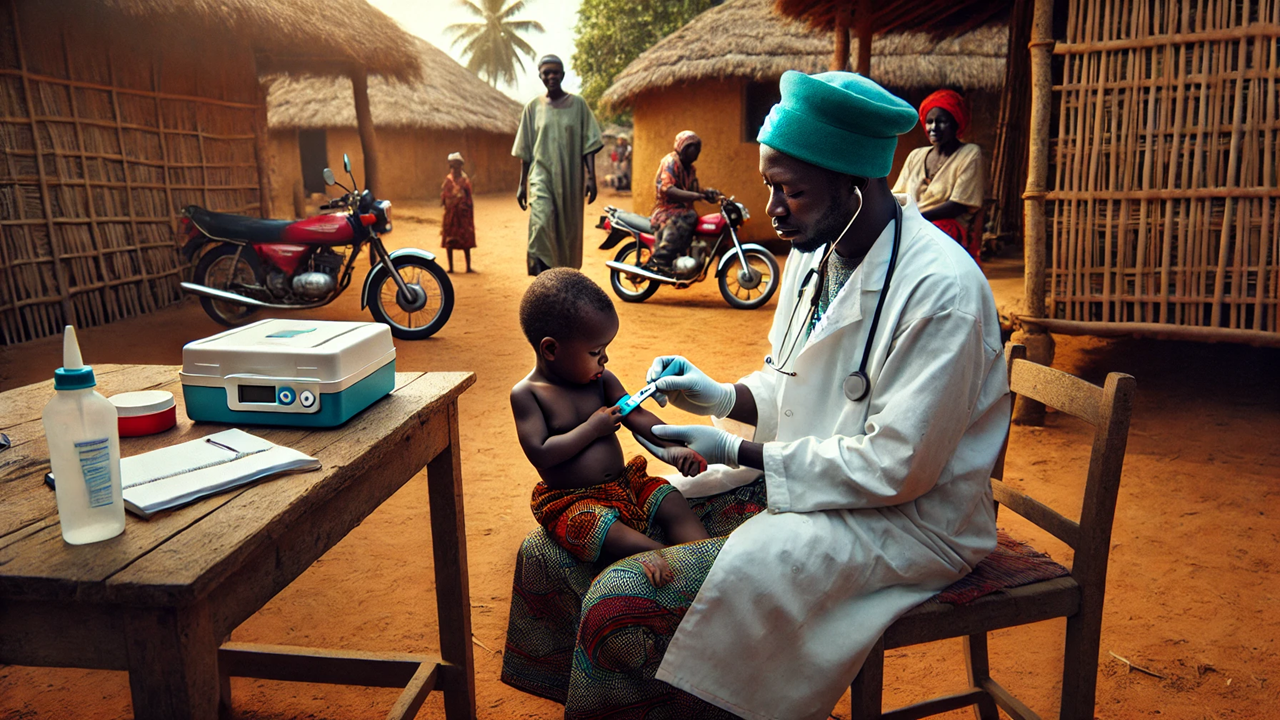A new study co-funded by the African Development Bank (AfDB) reveals that leveraging technology in healthcare delivery, management, and research could significantly enhance access to universal health coverage for Africans, thereby advancing the continent's progress towards the United Nations Sustainable Development Goals (SDGs).
The report, titled Policy Blueprint to Fast-Track Healthtech Innovations in Public Health in Africa, explores the potential of health technology—referred to as healthtech—to benefit patients, healthcare systems, and communities across the continent. This initiative was commissioned by HealthTech Hub Africa and produced by VillageReach, with funding support from UBS Optimus Foundation and the AfDB Group’s Innovation and Entrepreneurship Lab, backed by financing from the Swiss State Secretariat for Economic Affairs.
Conducted between May 2023 and February 2024, the study involved extensive data collection and stakeholder consultations with innovators, startups, investors, civil society, and representatives from government entities across 11 African countries, including Côte d’Ivoire, Ethiopia, Kenya, Malawi, Nigeria, Rwanda, Senegal, South Africa, Tanzania, Uganda, and Cameroon.
The findings provide valuable policy guidance, actionable recommendations, and practical examples to accelerate the development and sustainability of health in Africa.
Dr Babatunde Omilola, AfDB’s Manager for Public Health, Security, and Social Protection, underscored the relevance of the report, stating, “This policy blueprint comes at a very opportune time as it gives policy directions to governments across Africa who are witnessing an increase in entrepreneurs developing innovative healthtech products. The policy guidance will help create an enabling environment for products that can improve healthcare access and quality while reducing costs for millions.”
However, the report also identifies several significant challenges that hinder the mainstreaming of healthtech in Africa:
Lack of Unified Policies: The absence of comprehensive and updated policies creates barriers to innovation.
Complex Licensing Processes: Navigating the regulatory landscape can be cumbersome for healthtech startups.
Fragmented Health Data Systems: Poorly digitized and disconnected health data systems limit efficiency and data accessibility.
Insufficient Funding: A lack of financial support and innovation incentives stifles potential growth and development.
To address these challenges, the report recommends several key actions:
Strengthening Stakeholder Dialogue: Enhance coordination among health-tech stakeholders to foster collaboration.
Refining Health Data Policies: Improve policies surrounding health data access and interoperability to facilitate smoother operations.
Accelerating Innovation: Promote innovation while ensuring data protection and privacy.
This study aligns with the AfDB’s broader initiatives aimed at improving healthcare infrastructure across the continent. In 2022, the Bank launched its Strategy for Quality Health Infrastructure for Africa 2022-2030, which focuses on enhancing facilities related to water, sanitation, energy, transportation, and communication services. Additionally, the 2020 Pharmaceutical Sector Action Plan aims to boost local production capacities of medicines and vaccines while supporting research and development efforts in the pharmaceutical sector.
By fostering a conducive environment for health technology innovations, the AfDB and its partners aim to transform healthcare delivery in Africa, ultimately paving the way for better health outcomes and enhanced quality of life for millions across the continent.











